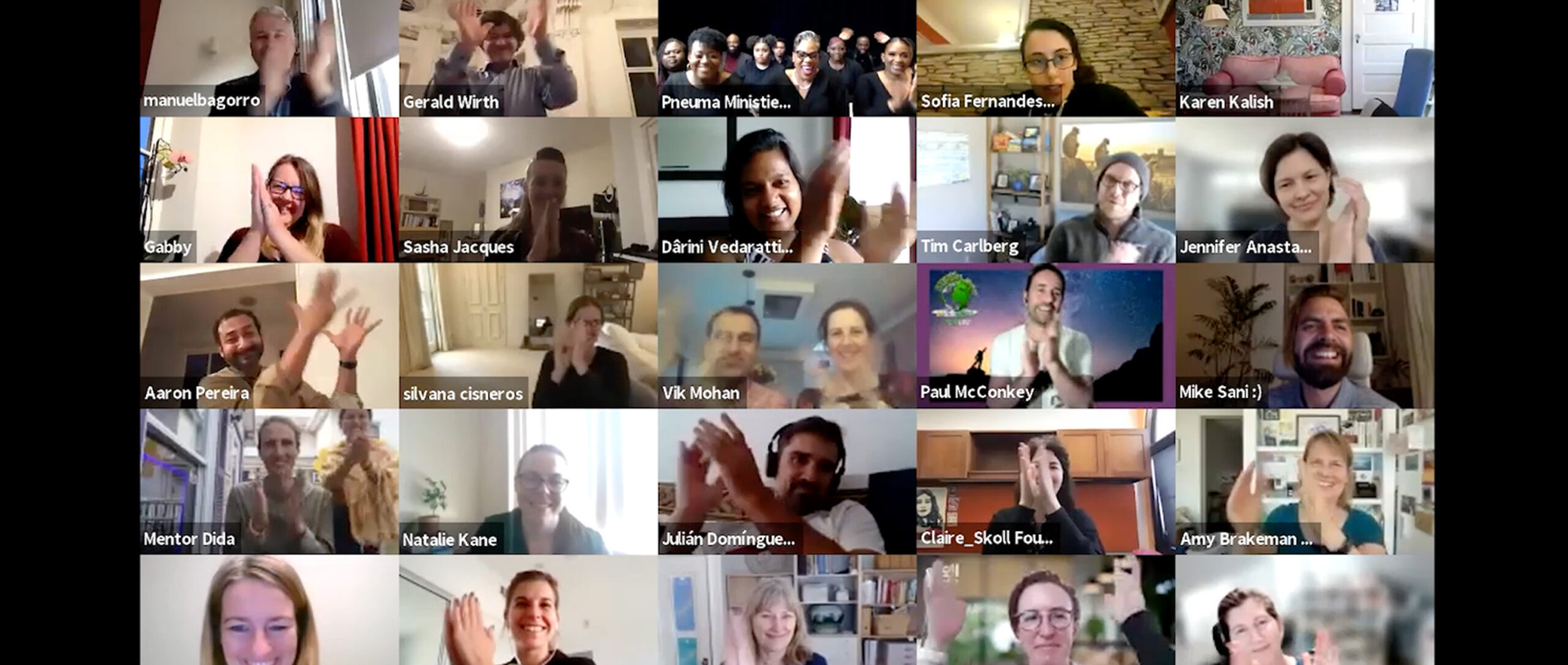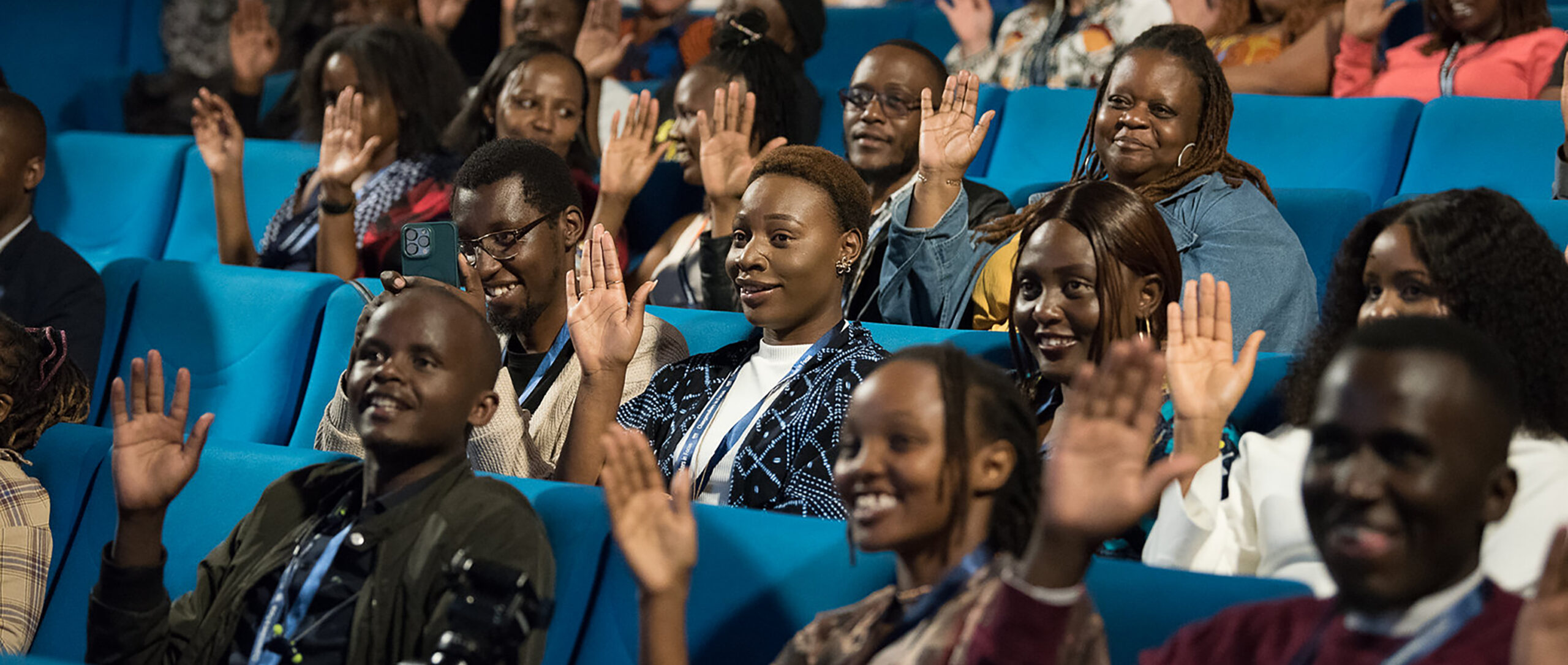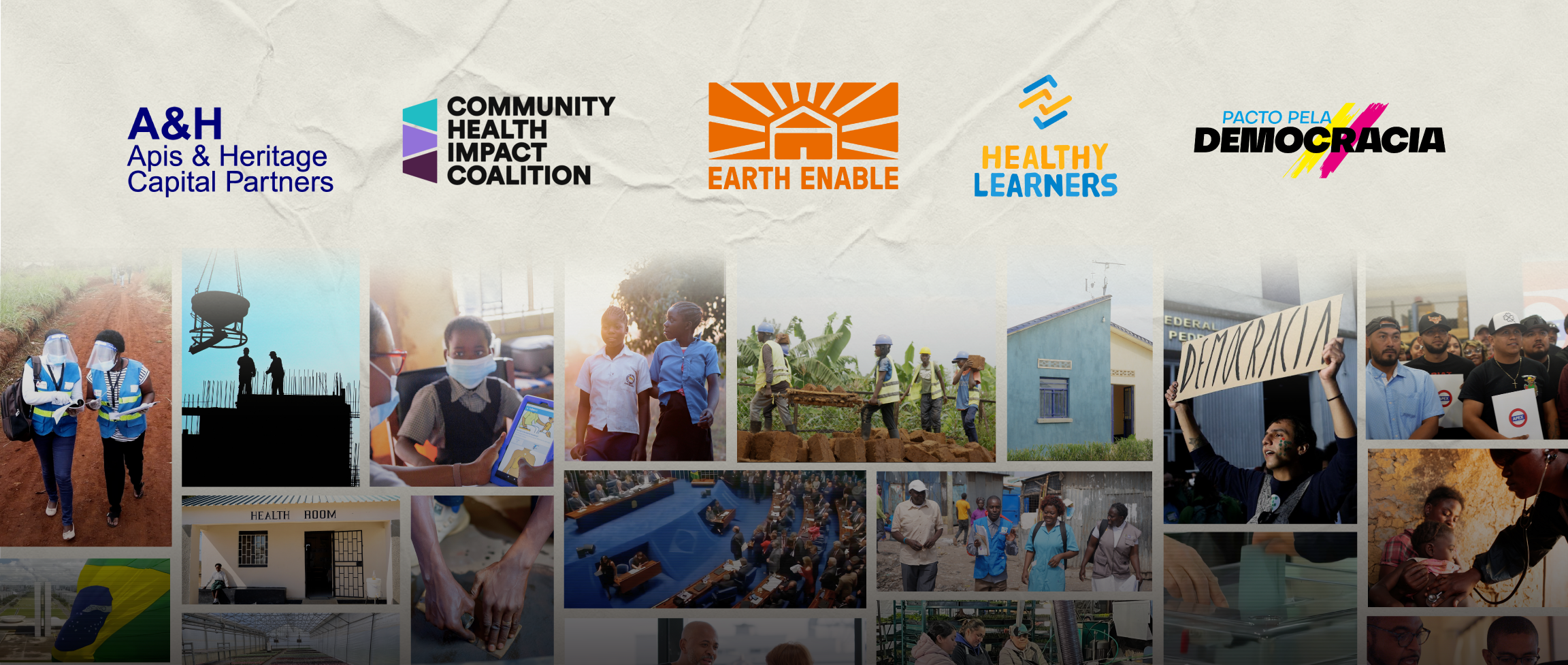Learning From Our 2021 Virtual Skoll World Forum While Planning the Next
During an event like the Skoll World Forum you feel a sense of energy, connection to old friends and colleagues, and the excitement of meeting new folks. Right after the event is over, when you’re coming off the high of being in community with others, on information overload, and hopefully a bit of inspiration hangover, we hit you with a feedback survey. It helps us understand the perceived quality of the convening: what logistically worked well and what didn’t; what speakers stood out and who missed the mark; what practices we should lean into and what we should reconsider for the future. But the real nuggets of gold come when we ask our network about the outcomes several months later that they attribute to their participation.
It’s notoriously hard to measure impact from events. In our heart of hearts, we believe that there is intrinsic value in convening, sharing knowledge, gaining new insights about our work, and taking in some inspirational talks and performances. The Skoll Foundation has a three-pronged approach to our work: Invest, Connect, and Champion. Those latter two elements are a critical part of our theory of change for good reason, and there’s research to back it up. Over time, the more nodes of a network or field start to build connections with each other, the more productive it can be.
But the truth is, for all the resources and time that go into putting on and attending events like the SWF, it is difficult to generate hard, attributable evidence of impact. We seed some serendipitous encounters, we carefully invite a diverse and influential group of people, we invite the foremost experts to impart their knowledge, add a little Oxford magic, and hope that these efforts pay off.
We first conducted a follow-up survey 4 months after the 2019 Skoll World Forum. While our inboxes were full of great anecdotal evidence of ideas sparked, collaborations formed, and funds transferred, we hoped for a more comprehensive view of our impact. Little did we know that 2019 would be our last in-person event – for a very long time.
This year, we hosted the 18th annual Skoll World Forum online. It was our largest convening ever. It was free and open to the public—with nearly 5,000 people joining from 124 countries. Participants heard from luminaries including politician Stacey Abrams, chef and anti-hunger activist Jose Andres, environmental justice advocates Gloria Walton and Mark Ruffalo, and global leaders including Ellen Johnson Sirleaf and Ernesto Zedillo.
For the majority of the program, we turned over the reins to our global network, issuing a request for session ideas that resulted in more than 500 proposals. Ultimately, we hosted 51 sessions during Forum week, and more than 360 different organizations had speaking roles, leveraging the platform to share their expertise and gaining valuable visibility for their work on the Forum virtual stage on a truly dizzying breadth of topics. Not surprisingly, speakers reported multiple positive impacts from their participation—more than any other group who attended. With triple the number of speakers at the virtual Forum compared to the typical Oxford event, those impacts add up.
While there were no in-person sessions, pub nights, or hugs… there were still Oxford-style debates, hands-on workshops, belly laughs, and dance parties. But what happened when everyone closed their laptop? Read on for what we discovered in our 5 month follow up survey, including select non-attributed quotes from participants:
The biggest advantage of virtual events = accessibility
While roughly 22 percent of respondents had attended the Forum in Oxford previously, the benefits of online convening include convenience (likely our first Forum attendees in pajama pants!), increased access for folks who have not been able to join in person; and the ability to interact with a more globally diverse group of speakers and participants when not limited by geography, flight schedules, or visa rules. On the other hand, the biggest advantage named for joining the SWF in person was higher quality connections and networking—and it was nearly unanimous. Trust us, we get it. We did not become connectors and conveners expecting to do it exclusively via laptop. But there are some good learnings here about how we might get better about connecting people online.
“I believe the 2021 SWF played a pivotal role in keeping people connected, engaged, determined, and inspired to keep trying to do hard things. I thought the fact that it was open to everyone with internet access created a more open and democratic space for knowledge exchange and convening.”
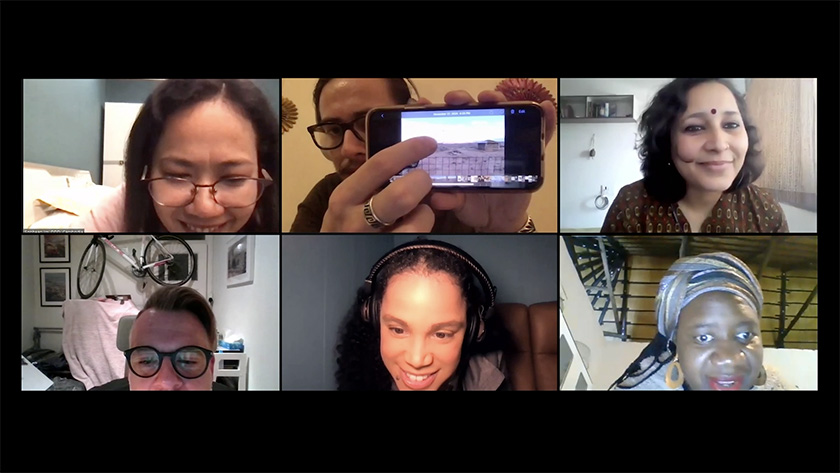
“While it is very challenging to do virtually – I think more curated networking opportunities would have been extremely helpful. The instant random 1:1 meetings were great and I loved being able to connect with other people in completely different sectors or areas of work. So I would keep those – but perhaps add a way to connect with others in your sector/geographic region/interest area/etc.”
This community supports wellbeing
42 percent of online participants said that the event had a positive impact on their personal wellbeing. Survey respondents who have attended the event in Oxford in the past were far more likely to say that their personal wellbeing was nourished as a result of attending the virtual event. Our hypothesis? They were able to engage with old colleagues and friends; relationships they’ve developed doing the hard work of social impact over the years. While the SWF delegates significantly change year over year (about 50 percent), there is a culture of connection and belonging that broke through into the chat box. Though our survey didn’t probe on the depth of this impact, it’s reassuring to see so many attendees report that feeling of nourishment.
“The most significant impact for me was reconnecting to one of the most important and trusted communities to which we all belong. After a year (second SWF year) of COVID—along with mounting political atrocities, the rallying cry of BLM and world literally on fire—it was humbling and joyful to return to the community where we can discuss the most dire global challenges and collaborate on breakthrough solutions, knowing our shared values and bonds will propel us forward. I am so grateful.”
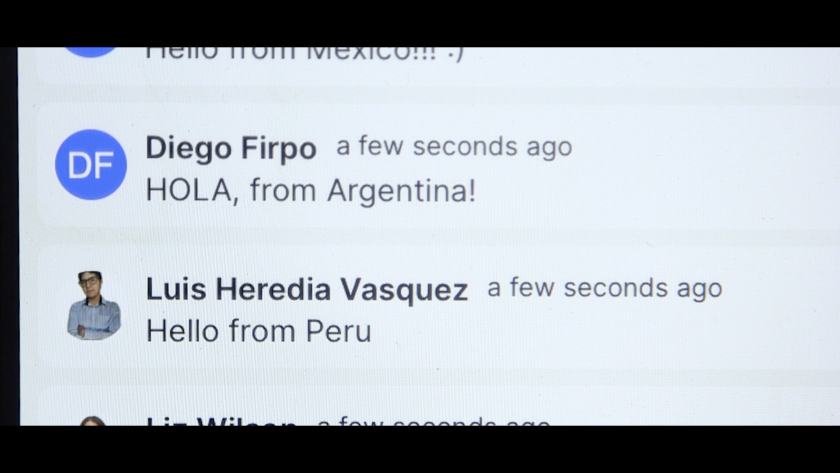
“I found the Forum great for my personal well-being. I’ve always wanted to attend the Skoll World Forum but distance or cost prevented me from doing so. Joining online for free was a gift. I was especially happy to hear from a range of women and non-binary individuals that are also people of color. The diversity was nourishing.”
Open access to the Forum benefitted more organizations overall
The scale of participation in the online Forum adds up. For example, a greater portion of online SWF survey respondents reported professional skill building than what we’ve seen from past in-person Forums. If we extrapolate the numbers, our survey indicates that over a thousand individual participants built professional skills from the experience and over 500 organizations benefitted from capacity building learnings. It’s also exciting to see that even an online convening can be catalytic for flow of investments—we heard that a minimum of $4m was exchanged as a result of joining the virtual Forum.
The virtual Forum was “far more inclusive and equitable. As we all speak about shifting the power and putting community leaders at the forefront, I was delighted to see this virtual Skoll World Forum finally opened up to many who have no access to attending when it is held in Oxford. …I know from speaking to some of the local [East African] teams at NGOs that they were absolutely thrilled to have an opportunity to participate in Skoll World Forum they had heard referenced so often. They felt they would finally have a chance to be a part of the conversation. I feel this is a statement in itself: that the people we work alongside in the Global South feel they have no access to the very event where we all gather to address their country’s issues!”

“We led a session that helped bring more visibility to our work and the overall themes & topics of the SWF helped to continue to advance the movement for more equity & proximity in philanthropy in ways that reinforced the need for our work. This helped us gain significant momentum broadly – and specifically helped move forward 2-3 funder conversations that are now on track towards meaningful grants.”
Advancing new collaborations is where virtual falls short
In 2019, nearly 50 percent reported initiating or deepening a programmatic collaboration with someone they met at the Oxford SWF. That number drops to 23 percent for the virtual version of the convening. Nothing to sneeze at, but maybe there’s something to those pub nights?
“I still believe that physical conferences provide far better networking opportunities than an online one. Depending upon interest maybe SWF can host regional sessions or watch parties to give it more of an in-person experience to the attendees.”
In 2022, we plan to host a hybrid Skoll World Forum—and our hope is to produce a convening that takes the best of both worlds—the unparalleled connections and networking in Oxford, alongside the open access and diverse global perspectives represented online. These past two years have provided us with valuable lessons on improving a virtual experience and we’re exploring new ideas including:
- More, better, and targeted opportunities to connect with each other online—via curated small groups, 1:1 matchmaking, and advance introductions to relevant attendees
- More time for audience discussion and interaction, less time passively watching presentations
- Improved visibility of who is attending and how to connect with them
- More “hands on” sessions including small group opportunities to tackle systemic problems and put ideas into practice
- Considering how we can facilitate collaboration after the event, creating a space that lives on for beyond a week in April and continues to generate impact.
As we plan for a hybrid future of the Skoll World Forum in 2022, we’ll lean into the best of what the in-person and virtual platforms offer respectively; and try to create some magic links between those able to attend in Oxford, and those joining via Wi-Fi. In the spirit of creating a bigger, more inclusive, and welcoming tent, we’d love to hear your ideas on how we might create bridges across those audiences—before, during, and after the Forum. Share your thoughts with us on our Engage page.
Want more stories of transformational change on the world’s most pressing problems? Sign up for our monthly newsletter.
